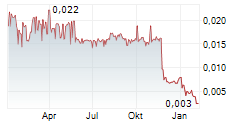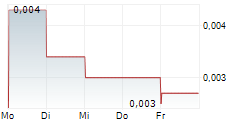
Solna, Sweden, January 16, 2025 - Vivesto AB, an oncology-focused development company, today announced that ethical approval has been obtained from the US Veterinary Review Board Clinical Studies Committee for a planned Paccal Vet dose-finding clinical trial in cats with cancer. The approval authorizes the participating clinical sites to enroll patients in the study.
The dose-finding study will initially be conducted at two clinical sites in Washington and Oregon, with the possibility to include more sites as the study progresses. The study will be managed by CASTR Alliance, the contract research organization (CRO) currently running Paccal Vet's pilot clinical trial in dogs with splenic hemangiosarcoma in the US. FDA's Center for Veterinary Medicine, CVM, has previously confirmed that the cat study can be conducted under the existing INAD (Investigational New Animal Drug).
"As we approach the first interim read out in the pilot study in dogs, we are now advancing the Paccal Vet program and broadening the indication areas to include cancer in cats. This is an important move from both a medical and a commercial perspective, as millions of cats are diagnosed with cancer every year and there are still no approved drugs available to treat them. With this approval and the upcoming trial, the first crucial steps have been taken toward providing a new potential treatment option for cats with cancer while building shareholder value in the program," said Erik Kinnman, CEO of Vivesto.
The dose-finding study will follow the 3+3 design, a widely used approach to determine the maximum tolerated dose (MTD). A maximum of 12 cats will be included, receiving Paccal Vet treatment in groups of three, with doses escalating for each group until the MTD is identified. This study design ensures patient safety while effectively identifying the appropriate dosage for Paccal Vet administration in cats.
For More Information:
Erik Kinnman, Chief Executive Officer
Phone: +46 018-50 54 40
E-mail: IR@vivesto.com
About Vivesto AB
Vivesto is a Swedish development company that aims to offer new treatment options for hard-to-treat cancers where there are major medical needs and significant market potential. The project portfolio consists of Cantrixil and Docetaxel micellar, which are being developed for blood cancer and prostate cancer, respectively, and the veterinary oncology program Paccal Vet (paclitaxel micellar), which is being evaluated in a pilot clinical trial in dogs with splenic hemangiosarcoma following splenectomy.
Vivesto's shares are traded on Nasdaq Stockholm (ticker: VIVE). Visit www.vivesto.com for more information about Vivesto.
About Paccal Vet
Vivesto's drug candidate Paccal Vet consists of paclitaxel formulated with the company's proprietary XR-17 technology, which enables good solubility without the undesirable effects of traditional formulations containing solvents. The absence of the solvent cremophor, to which cats and dogs particularly sensitive, may reduce the risk of serious side effects and death associated to the treatment. Paccal Vet also does not require the addition of human albumin, which when used in cats and dogs can cause hypersensitivity reactions and reduced treatment effectiveness. Previous clinical studies performed by Vivesto has demonstrated safety in more than 300 dogs. Also, anti-tumor activity has been shown in squamous cell carcinoma and non-resectable mammary carcinoma of stage III-V.
About cancer in cats
The need for safe and effective cancer treatment in cats is vast and increasing as the number of pets grows. Estimates indicate that there are more than 95 million cats in the United States alone and approximately 6 million of those are diagnosed with cancer each year. There are currently no approved drugs for the treatment of cancer in cats and current paclitaxel formulations are not tolerated by cats and therefore cannot be used.


